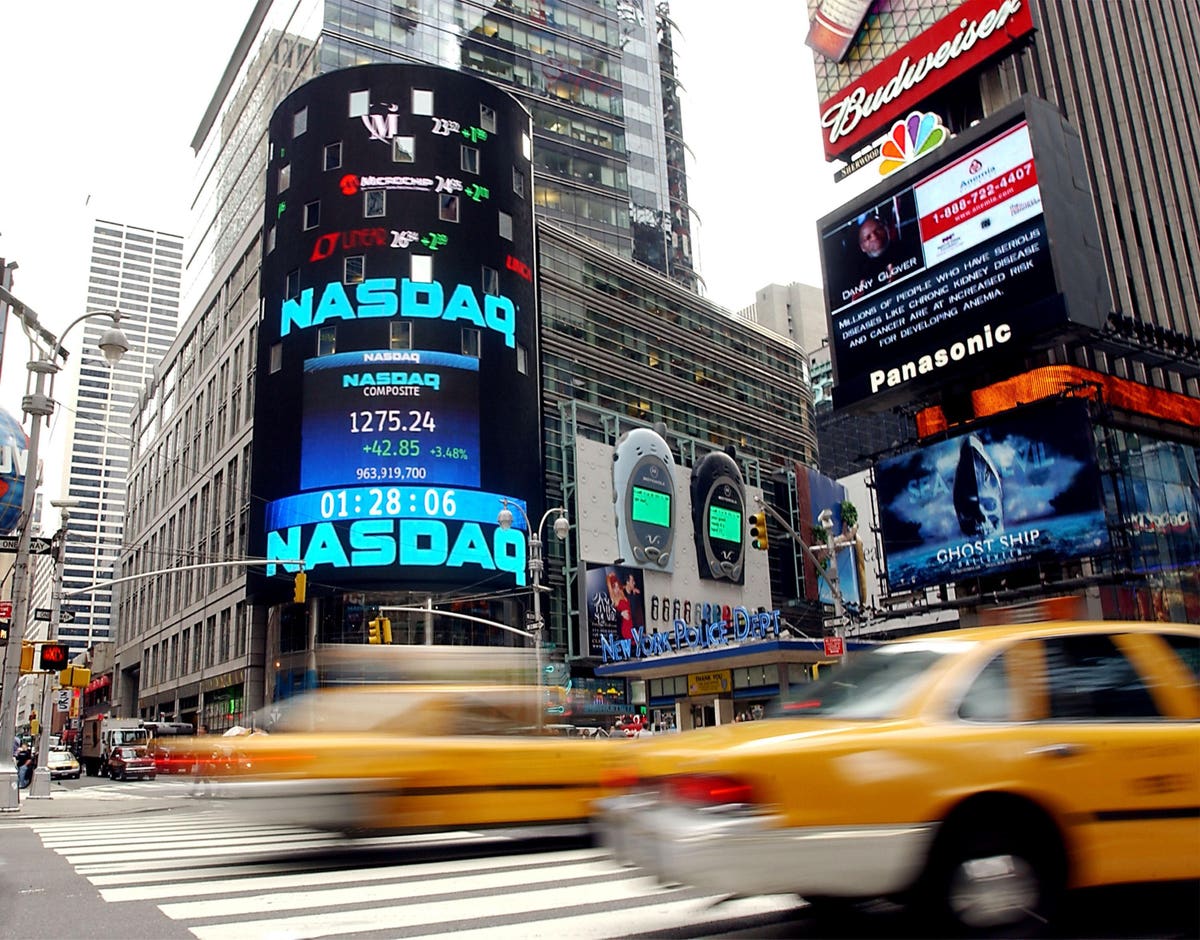Key takeaways
- The Nasdaq is set to close 2% down this week
- Apple is usually climbing right now, but a Chinese iPhone ban has left the stock shaky
- Concerns over China’s economic growth and U.S. inflation are weighing on all of the major indexes
After a stellar run for the rest of the year (bar August), the Nasdaq has been dragged downwards this week. A series of concerns are weighing on the tech-heavy Nasdaq, as well as the other major indexes, with all three set to finish with a weekly loss.
With the stock market, you win and lose some, but investors are concerned this is the beginning of a longer trend after August’s dismal performance. Apple’s share price has been collateral damage by China’s economic slowdown and now escalating tech tensions between the U.S. and China.
Top it off with more hawkish comments from Fed officials about monetary tightening, and you’ve got Wall Street officially scared. Let’s take a closer look at why the Nasdaq is down this week and how much each factor weighs on it.
Why is the Nasdaq down today?
The Nasdaq Composite index closed 0.89% down on Thursday, marking a fourth straight day of declines for the tech-heavy index. In comparison, the S&P 500 lost 0.3% in value on Thursday – the third day in a row the index marked declines – and the Dow Jones Industrial Average closed 0.17% higher.
The Nasdaq is still 32.3% up since the start of the year, which has outpaced the S&P 500’s 16.4% rise and the Dow Jones’ 4.1% climb. But August was a tough month for the stock market due to concerns over China’s economic slowdown and fears around monetary tightening lasting longer than expected.
September looks to be shaping up the same way so far, with all three major indexes facing weekly losses. The Nasdaq is off by 2%, the S&P 500 is set to finish the week 1.4% lower and the Dow Jones forecast is a 1% loss.
Apple’s wavering stock
A major reason why the Nasdaq is down is due to mega cap stock Apple’s dreary performance this week. Apple’s share price usually goes up before a big Apple event – and we’re just four days away from one – but this time, we’re seeing the opposite happen.
Apple’s share price closed 3.6% lower on Thursday after news emerged that China has banned officials from central government agencies from using iPhones or other foreign-branded devices for work. There’s the possibility the ban could be widened to include state-owned companies soon.
The timing has worked out brilliantly for Chinese tech company Huawei (banned in the U.S.), who released the new Mate 60 Pro phone last week. Despite the 5G chip export ban in place for China, the country’s top chip maker, SMIC, has made an advanced 7-nanometer processor to power the new high-end smartphone.
But for Apple, the news is potentially disastrous. China’s market accounts for roughly 19% of Apple’s entire revenue; should a blanket ban from China come into effect, that’s a severe hit to the tech titan’s bottom line.
Apple stock’s dismal performance also marks the first time in seven years that Apple’s share price hasn’t risen between the June earnings report and the September flagship launch event.
China’s weak recovery is hurting stocks
We already saw China’s economic slowdown impact the global stock markets, and the same could happen in September. Alongside the escalating U.S.-China tensions, there’s also an increasingly troubling property market and its risks for the overexposed shadow banks the country has to reckon with.
Some progress has been made. Country Garden Holdings reached an agreement with its creditors to avoid defaulting on its debt, though the problem is definitely a can kicked down the road rather than solved.
China has also relaxed mortgage restrictions and lowered deposit rates to persuade Chinese homebuyers that the market is safe to invest in. China’s property market comprises roughly a quarter of economic activity, so signs of trouble have left global markets nervous.
A Chinese downturn affects several large-cap Western stocks, with a slowdown in property construction hitting metal and copper mines where it hurts. EV companies that are looking to capitalize on the booming EV Chinese market, such as Tesla, Volvo and BMW, could also take a hit depending on how well their price cuts pan out.
A weaker yen could also make Chinese companies more attractive to trade with and invest in, pushing China’s market share in Western markets. One notable example is EV maker BYD, which already dominates the Chinese EV landscape and is looking to gain market share in Europe.
Jobless claims cause a ruckus
The labor market has been a thorn in the side of the Fed’s monetary tightening policy, showing resilience to the point of running far too hot for the central bank’s liking. We’ve seen a gradual slowdown in job openings and a small-to-moderate hike in unemployment, but the latest U.S. jobless claims report upset the apple cart this week.
Initial claims for unemployment benefits fell by 13,000 to hit 216,000 in the week ended Sep 2. From a revised 229,000 the week before. The consensus estimate was that unemployment claims would rise to 234,000. Not only did it mark a fourth-straight week of declines in unemployment, but it was the lowest level since February.
Continuing unemployment claims also fell by 40,000 to 1.679 million from the week ended Aug 26. That’s the lowest continuing unemployment rate since the week ended July 15.
Last week, the unemployment rate from the Labor Department unexpectedly rose to 3.8%, up from 3.5% the month before. Wage increases also cooled, but the labor force participation rate is at its highest level since the beginning of the pandemic.
It’s a mixed bag for the labor market data, which makes the path ahead murkier for investors and the Fed. Declining unemployment suggests that more monetary tightening must happen until inflation is controlled, which has scared Wall Street.
Could interest rates go up?
Higher interest rates aren’t great news for stocks, so any whisper of monetary tightening continuing is bad news for the stock market. With some new comments from Fed officials on the hawkish side, it’s left Wall Street very concerned more rate hikes are on the way.
New York’s Fed president, John Williams, remarked yesterday that it was an “open question” as to whether the Fed had done enough yet to bring inflation down. “We’ve got policy in a good place, but we’re going to need to continue to be data dependent,” he said; the next set of inflation for August is due next week.
The CME FedWatch tool currently has interest rates holding steady at a target range of 5.25% to 5.5% as a 93% possibility, but after that there’s only a 55% probability currently that interest rates will continue to stay where they are.
The bottom line
The Nasdaq and the other major indexes are struggling right now, as they did in August. The leading cause for this week is that Apple’s usually on the way up right now, but the China ban has been a blow to the share price.
There are broader concerns around the health of the U.S. economy and battling inflation, which pushed stocks down in August and looks to be impacting the indexes in September, too. There’s still plenty of time for the Nasdaq to recover throughout the month, but as it stands now, it’s set to be another tricky month for the stock market.
Read the full article here













